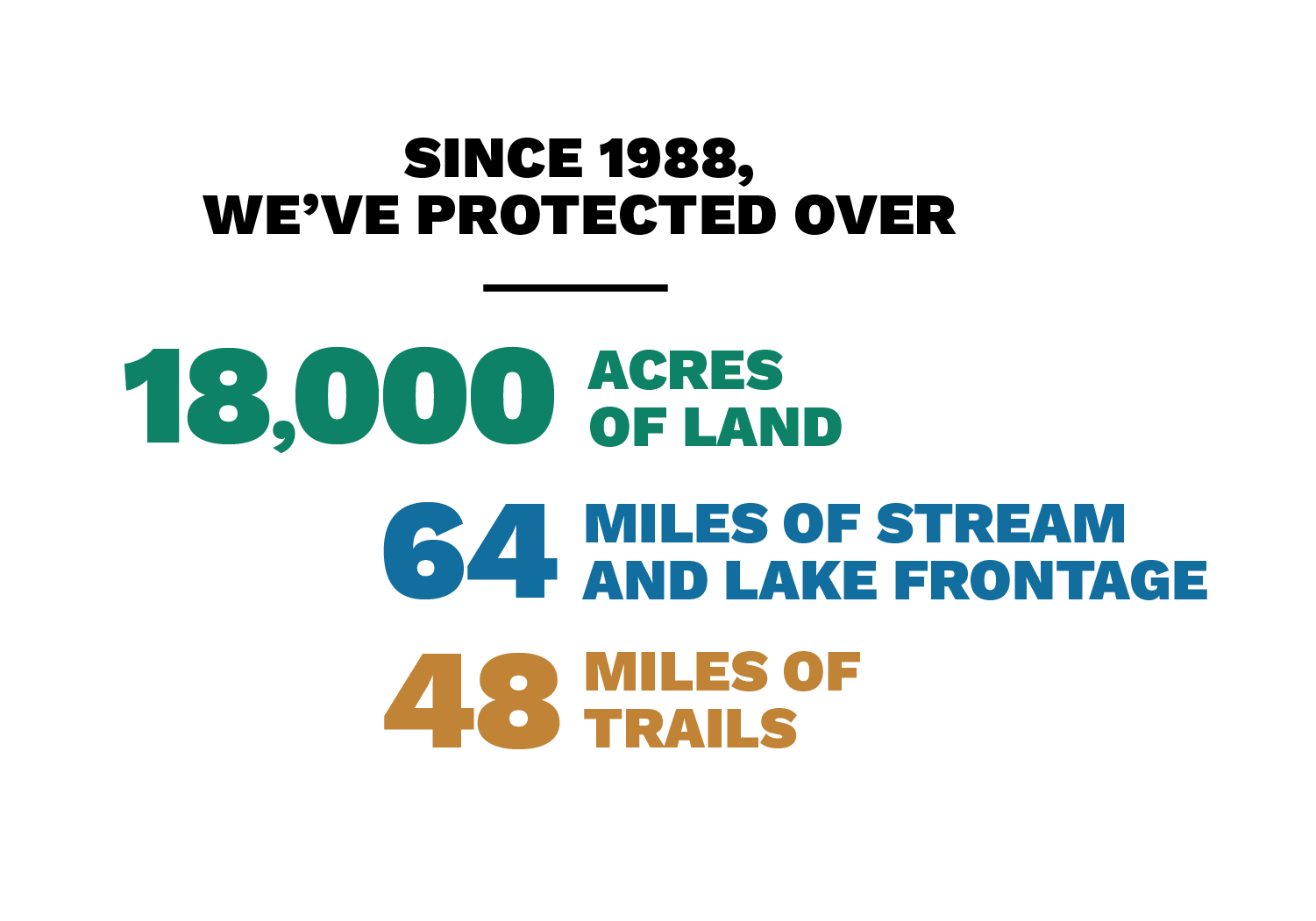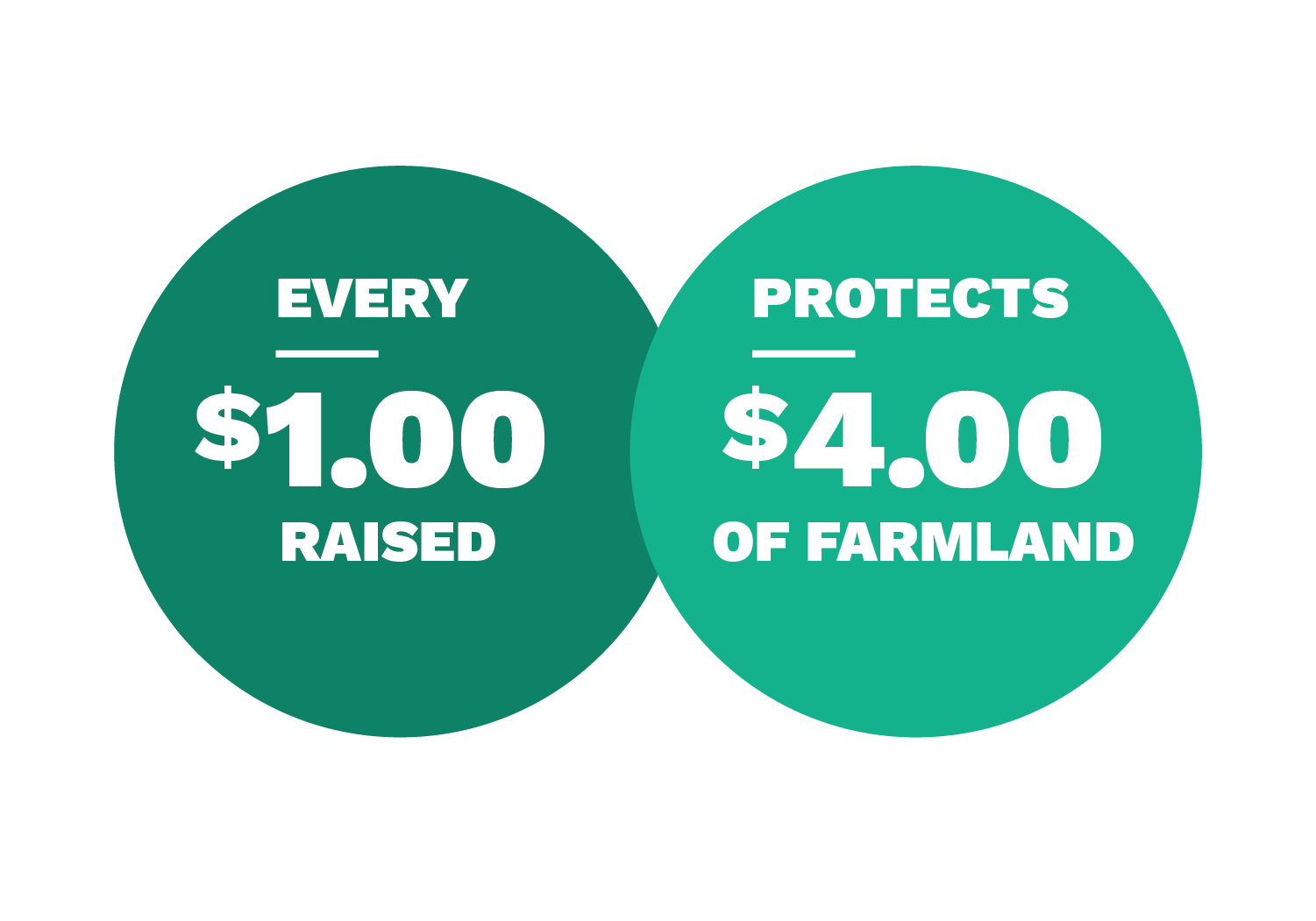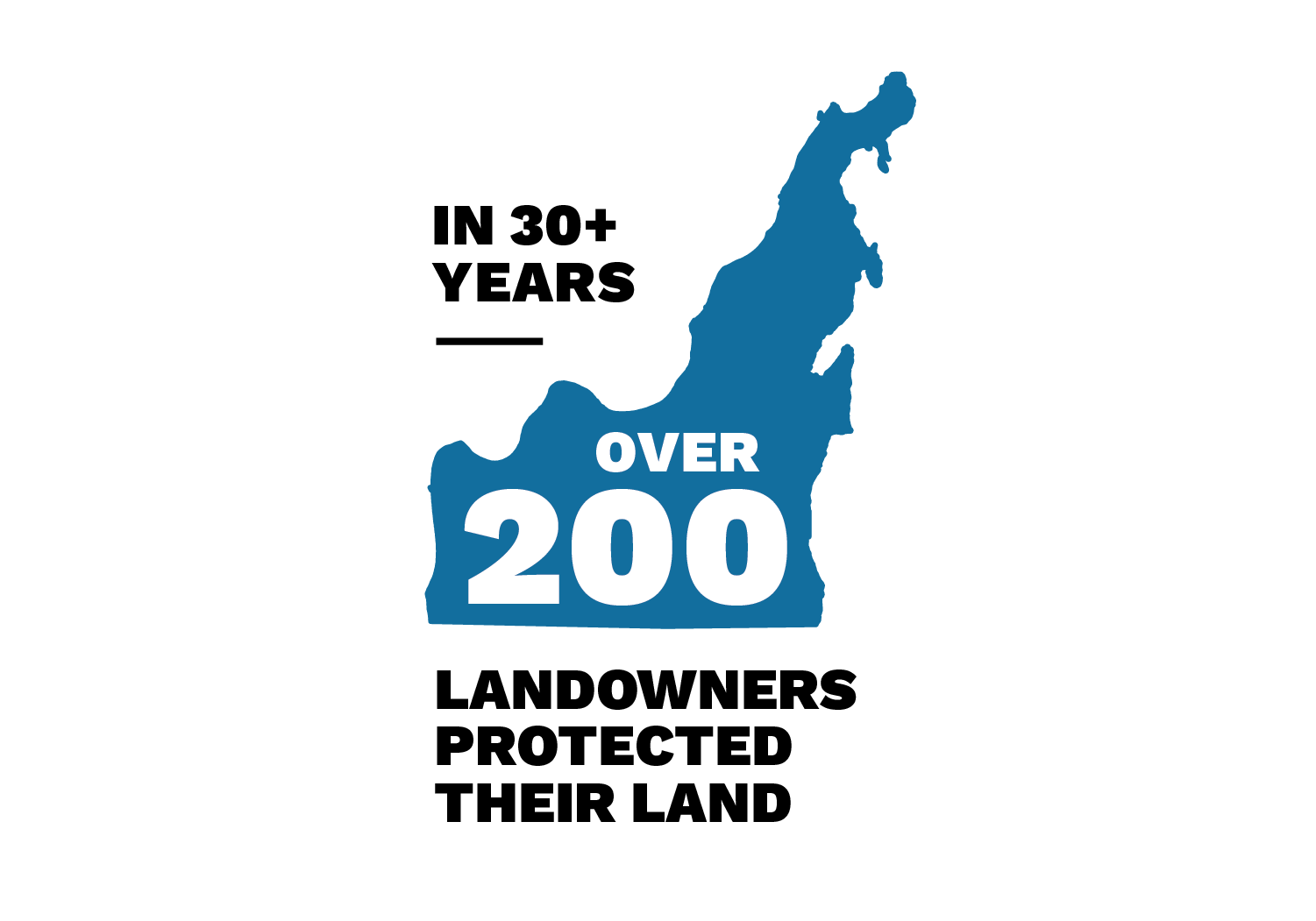Landmark 4th Generation Olsen Farm in Bohemian Valley: First 40 Acres Forever Protected
From our 2010 Spring Newsletter
Bill Olsen is a man of few words. But one phrase he says over and over again when talking about preserving his farm is, “That really means a lot to me.”
It means the world to Bill to think he could preserve the beautiful land along Bohemian Valley Road that he has farmed for over 50 years. Land his father and grandfather worked before him. He’s proud that a farmhouse on the property will soon qualify for Centennial status. And it’s a delight to him to think that his 18-month-old grandson, D.J., just might take over the farm one day. “I’m workin’ on him already,” says Bill. “We want to keep the farm in the family and keep it productive.”
In early February the Leelanau Conservancy purchased development rights (PDR) on 40 acres, a fraction of the 440-acre farm that Bill owns with his wife, Linda, and older brother Gerald. He says he hopes to preserve the entire 440 acres one day.
With its three towering grain silos and sprawling barns, the Olsen farm is a landmark along this undulating road that bikers and color tour folk love to traverse. Bill says that the road hasn’t changed much since his boyhood days, and he’d just as soon keep it that way. He’s had developers knock on his door over the years. When asked why he hasn’t taken them up on their offers, he grins and just says, “Stubborn, I guess. My point of view, you get too much money, you do stupid things, get into trouble.”
Bill is a 4th generation Leelanau farmer. His great-grandfather Ole Olsen came over from Norway in the late 1800s and homesteaded land near Port Oneida. Ole’s son Charles (Bill’s grandfather) eventually took over the Port Oneida farm and also acquired the Bohemian Valley land during the Depression in a debt settlement. At that point, Bill’s dad Orville was struggling to pay his own mortgage on a farm in Empire. Charles figured that the Empire farm was more saleable, so traded with his son the Bohemian Valley land for the Empire land.
For years, the Olsens had a large dairy herd and cultivated 250 acres of hay used to feed their stock and to sell to other farmers. Last year, when the bottom fell out of the dairy market, Bill, 61, called it quits. “I don’t mind working hard to break even,” he says. “But working hard only to lose money makes no sense. I’m getting too old for that.” He says that the recession has shrunk world milk demand by 10 percent. Developing nations and world food programs can no longer afford to buy our excess milk.
Funds from the PDR helped Bill to shift his focus. This year he has raised 40 bull calves purchased at auction and resells them once they reach about 600 pounds. He is also planning to put in a large vegetable garden and roadside stand. For the first time in many years, he and Linda are free from the rigors and restrictions of milking schedules.
The Leelanau Conservancy has applied for Federal Farm and Ranchland Protection Funds in order to protect more of the farm. If attained, the funds would pay 50 percent of the cost of PDR on an additional 223 acres. The Conservancy will need to raise the other 25% and under the program the farmer also contributes 25% of the value in a “bargain sale.”
Under such PDR agreements, farmers are paid the difference between what their land is worth for agricultural use versus what it is worth if it were subdivided and turned into residential development. In most cases, farmers like Bill Olsen cannot make a generational transfer of land or restrict it from development without receiving some sort of compensation. Their entire lives are wrapped up in their land and they need funds to retire on.
“Not surprisingly, the federal farmland preservation program doesn’t have a lot of money to go around, and so the process is fiercely competitive,” Tom Nelson, the Conservancy’s Director of Farm Programs. “That said, you can’t help but admire the dogged persistence of Olsen Family in doing their part to keep those age-old agricultural traditions alive in the gorgeous Bohemian Valley. Jerry, Bill and Linda are truly the quiet heroes of this story.”
Bill says the family including two grown daughters, Tracy and Rachel, are all on board. “I tell my daughters once farmland is gone, you’ll never get it back. This is a once in a lifetime deal.”



